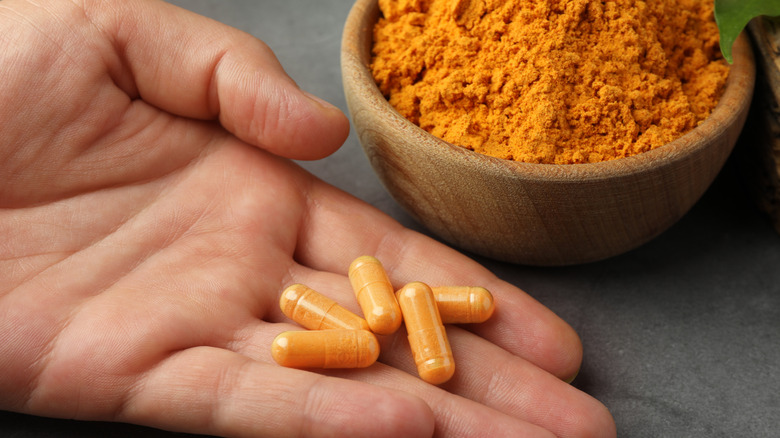
If you’re familiar with the health advantages of turmeric, you’ll comprehend why its popularity is on the rise in the United States. Traditionally used in Ayurvedic medicine for its anti-inflammatory benefits, turmeric is now being studied for a variety of potential advantages, such as alleviating arthritis pain, supporting cognitive health, and aiding in cancer prevention. Although scientific findings are varied regarding turmeric’s impact on particular conditions, its active ingredient, curcumin, is recognized for its potent antioxidant properties.
Adding a small amount of turmeric to your meals won’t provide much curcumin, which is why many individuals opt for turmeric supplements. Due to curcumin’s poor absorption by the body, these supplements often contain piperine (a compound in black pepper) to enhance absorption.
However, there is a downside. These concentrated supplements can lead to liver toxicity in some individuals. A 2023 study published in the American Journal of Medicine reported an increase in liver injuries associated with turmeric supplements, especially among those with a specific genetic predisposition. The researchers suggest that the increasing use of piperine to boost absorption might be contributing to this trend.
How turmeric may be linked to liver damage

For a long time, turmeric wasn’t deemed a significant concern regarding liver health. According to the National Library of Medicine’s LiverTox database, earlier studies indicated that while turmeric might cause temporary changes in liver enzyme levels, it didn’t seem to cause severe liver damage. Even at doses up to 1,000 milligrams per day in supplement form, side effects were generally limited to skin irritation or mild digestive issues. However, as supplement manufacturers began improving turmeric’s bioavailability by adding ingredients like piperine, reports of liver injuries became more frequent.
A 2020 study in the British Journal of Clinical Pharmacology reviewed several case reports linking turmeric supplements to liver damage. In many instances, patients were also on other medications, but their liver function improved after discontinuing the turmeric supplement, indicating a potential connection. One hypothesis is that some turmeric supplements contain synthetic curcumin, which is more stable but might behave differently in the body than naturally occurring curcuminoids. Low-cost supplements may also contain chemical residues from the manufacturing process, potentially increasing liver risk.
The LiverTox database also highlights an unpredictable immune response as a possible factor in turmeric’s impact on liver health. A particular genetic marker, HLA-B*35:01, which has also been linked to liver injuries from other herbal products like green tea extract, is frequently found in patients with turmeric-related liver damage (by the way, here are other herbs that pose a risk to your liver).
When to be careful about turmeric supplements

Consuming a turmeric shot or adding a dash to your meals is unlikely to harm your liver. However, the regular use of high-dose turmeric supplements might present a greater risk. Turmeric-induced liver toxicity can develop over a few weeks to four months. Initial symptoms may include fatigue, nausea, and loss of appetite. As liver damage advances, you may notice dark urine or yellowing of the skin and eyes (jaundice). A physician can diagnose liver issues through blood tests that assess liver enzyme levels. In many situations, liver function improves after stopping turmeric supplements. However, more severe cases might require steroid treatment. (Here are some warning signs from your liver you shouldn’t ignore.)
Turmeric isn’t suitable for everyone. Individuals with bleeding disorders or those on blood thinners should exercise caution, as turmeric can slow blood clotting and heighten bleeding risk. It may also hinder iron absorption, posing a potential concern for people with iron deficiency.
Men should be mindful that some research indicates turmeric might lower testosterone levels and sperm count. While turmeric may aid in regulating blood sugar, those on medications for type 2 diabetes should be cautious, as it might cause blood sugar to drop excessively. Turmeric could worsen certain gallbladder conditions. Those with gallstones or a bile duct obstruction should avoid turmeric supplements entirely.
“`




